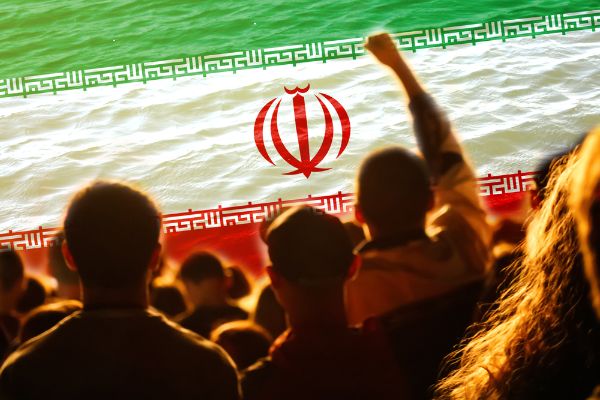In Oct., shortly after the Iran-backed massacre of approximately 1,200 people in Israel and Iran’s historic direct missile attack on the nation on Saturday, the administration of left-leaning President Joe Biden did not take action to extend the expiring sanctions on Iran’s production of ballistic missiles and drones at the United Nations.
The Iranian military has been threatening Israel with retaliation for much of the past week. The United States designated the Islamic Revolutionary Guard Corps (IRGC), an arm of the Iranian military and a terrorist organization, as the target of a military operation. The operation yielded the elimination of seven terrorists from Iran, the most notable of whom was Mohammad Reza Zahedi, the head of the Quds Force.
At last, Tehran moved on Saturday, unleashing more than 300 missiles and drones into Israeli territory. In response, Biden called the onslaught “unprecedented,” coordinated directly by the Iranian military and not by any of its numerous proxy forces, like Hezbollah in Lebanon or the terrorist group Houthi in Yemen. But it did not cause any significant harm.
The Israel Defense Forces (IDF) have acknowledged that more than 300 different sorts of threats have flooded Israel from Iran. We intercepted 99 percent of them, including all the drones and cruise missiles. Israel reported a single casualty: an Arab girl, struck by shrapnel from one of the missiles. In spite of this, the IRGC proclaimed the attack a “success” and declared victory. The Iranian leadership permitted followers to plan public celebrations on Saturday night in response to the attack in Tehran, as it always does following terrorist attacks.
After the incident, opponents of the Biden administration pointed out that Iran had until October 18, 2023, or “transition day,” to lawfully continue developing drone and ballistic missile technologies. Former President Barack Obama negotiated the disastrous 2015 “Iran nuclear deal” known as the Joint Comprehensive Plan of Action, which included UN Security Council restrictions on Iran’s ballistic missile and drone programs. The accord’s signatories selected October 18 as the date of automatic expiration, probably thinking Iran would follow the terms of the agreement and merit the termination.
Since signing the agreement in 2015, Iran has continuously broken the terms of it; in November, it drove out inspectors from the International Atomic Energy Agency (IAEA). Iran is enriching uranium at a rate that is inconsistent with peaceful nuclear development, as the IAEA has warned on multiple occasions.
October 18 also happened to be the day that Hamas, a jihadist group that has long benefited financially from Iran, invaded and massacred Israelis. On October 7, a Hamas official told the BBC that Iran had provided “direct backing” to Hamas for the attack. Ayatollah Ali Khamenei, the “supreme leader” of Iran, openly applauded the genocide on Twitter, referring to the state of Israel as a “disease.”
It was possible to use UN procedure to extend the Security Council sanctions and formally accuse Iran of breaking the terms of the nuclear agreement. Relying on the support of dozens of states that co-signed a joint statement with the State Department in October, the Biden administration announced a new set of sanctions restricted to specific Iranian individuals and groups, but it made no attempt to “snap back” the previous set.
The UN Security Council’s October 18, 2023, limits were “based on the premise that Iran will take the required actions towards restoring confidence in the strictly peaceful character of its nuclear program,” according to the statement. This has not actually occurred. In this regard, it is essential that all states maintain their counterproliferation cooperation in order to counter Iran’s destabilizing ballistic missile-related activities.
In an October 18 statement, Secretary of State Antony Blinken stated that Iran’s “development of missile-related technology is one of the greatest challenges to world peace and security” and vowed to “use every tool at our disposal to counter” it.
The statement, which concentrated more on Iran’s alleged supply of drones to Russia for use in the Ukrainian warzone and its arming of terror proxies than on worries that Iran could use its weapons itself, did not mention the lifting of U.N. sanctions. Similarly, rather than concentrating on Iran’s own capacity for assault, experts worried about the sanctions’ expiration cautioned that Iran would now be able to arm “Hamas, Hezbollah, Islamic Jihad, and the Houthis.”
On “Transition Day,” the Iranian leadership said that the sanctions against its drones and missiles had “unconditionally” ended.
In response to the attack on Saturday, the Israeli government declared that it would keep protecting itself from its neighboring terrorist group.
Benny Gantz, the minister of the military cabinet, declared on Sunday that “we will establish a regional alliance and exact the price from Iran in the way and timing that is right for us.”

